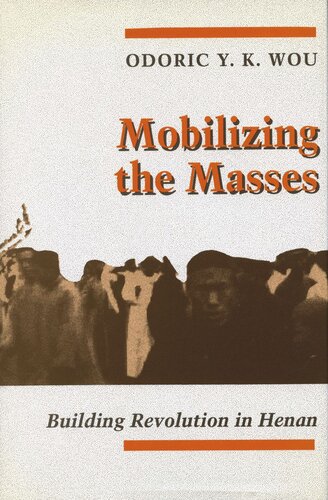

Most ebook files are in PDF format, so you can easily read them using various software such as Foxit Reader or directly on the Google Chrome browser.
Some ebook files are released by publishers in other formats such as .awz, .mobi, .epub, .fb2, etc. You may need to install specific software to read these formats on mobile/PC, such as Calibre.
Please read the tutorial at this link: https://ebookbell.com/faq
We offer FREE conversion to the popular formats you request; however, this may take some time. Therefore, right after payment, please email us, and we will try to provide the service as quickly as possible.
For some exceptional file formats or broken links (if any), please refrain from opening any disputes. Instead, email us first, and we will try to assist within a maximum of 6 hours.
EbookBell Team

4.3
38 reviewsA study of the roots of revolution in the Chinese province of Henan, this book describes in detail more than two decades (1925 to 1949) of the efforts of the Communist Party to build mass support for revolution. These were decades of social and political crisis, beginning with the May 30th Movement, exacerbated by the Japanese invasion in 1937, and culminating in the Communist victory of 1949. Looking for historical continuities and changes, the book traces the Communist movement's trajectory from the cities to the countryside and back to the urban centers, in the process testing the major social science paradigms of peasant-based revolution. The author studies the interaction in Henan between the Communist revolutionaries and various groups that constituted the social base of the revolution - workers, religious sectarians, rural elites, student intellectuals, the military, and, above all, the peasantry. He closely studies the behavior of these groups and explains the social and structural forces that facilitated or constrained the Communist movement. He also shows how Communist mobilization tactics changed to accommodate such varied settings as the war zone, the mountains, and the floodplain. The author concludes that the key to the Communists' victory lay in their ability to maneuver their way to political power, their skillful use of nationalist sentiment, and their community and reform programs that ultimately won over the peasant masses. Thus, he sees the Chinese Communist movement as a dual revolutionary process of power politics and social revolution.